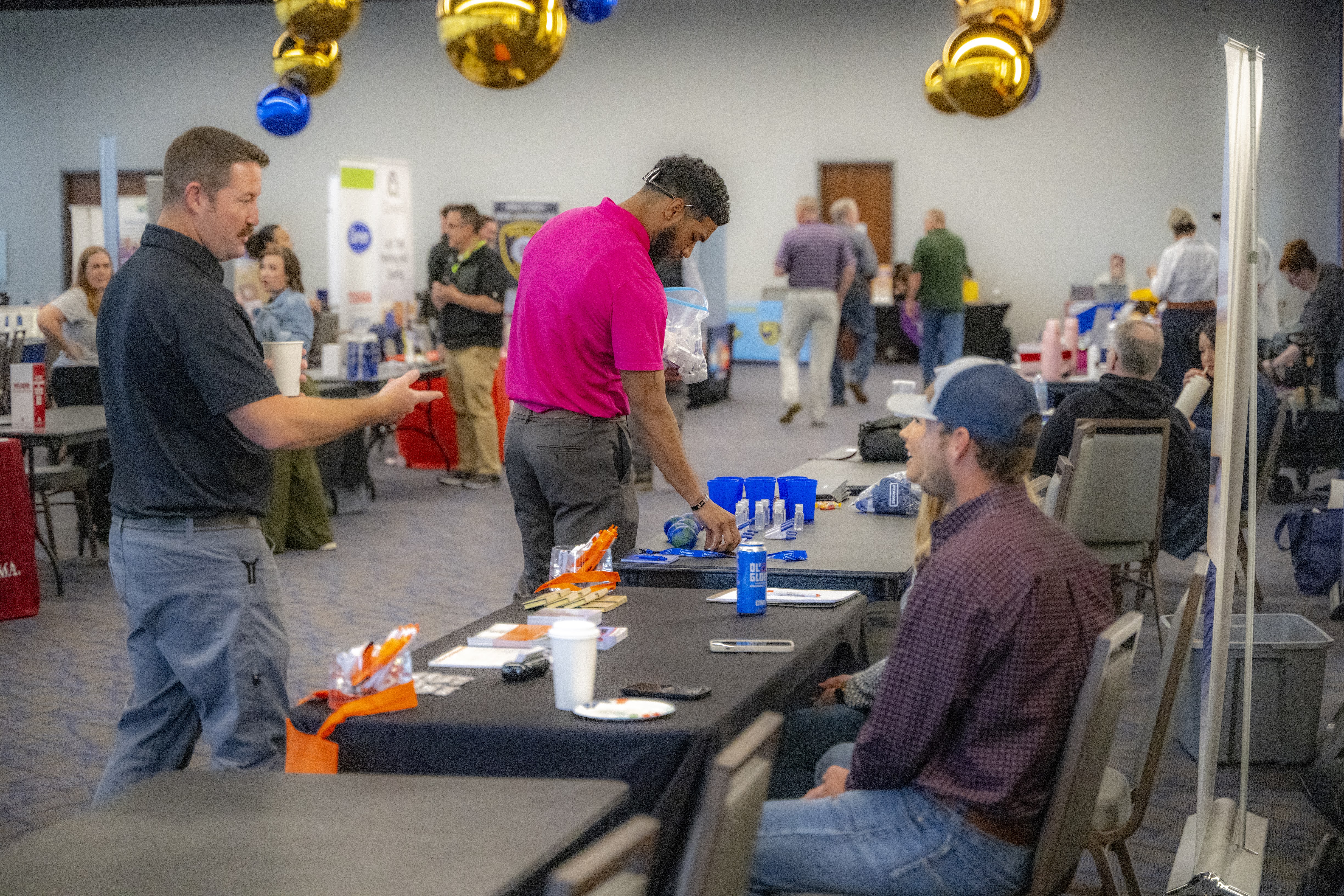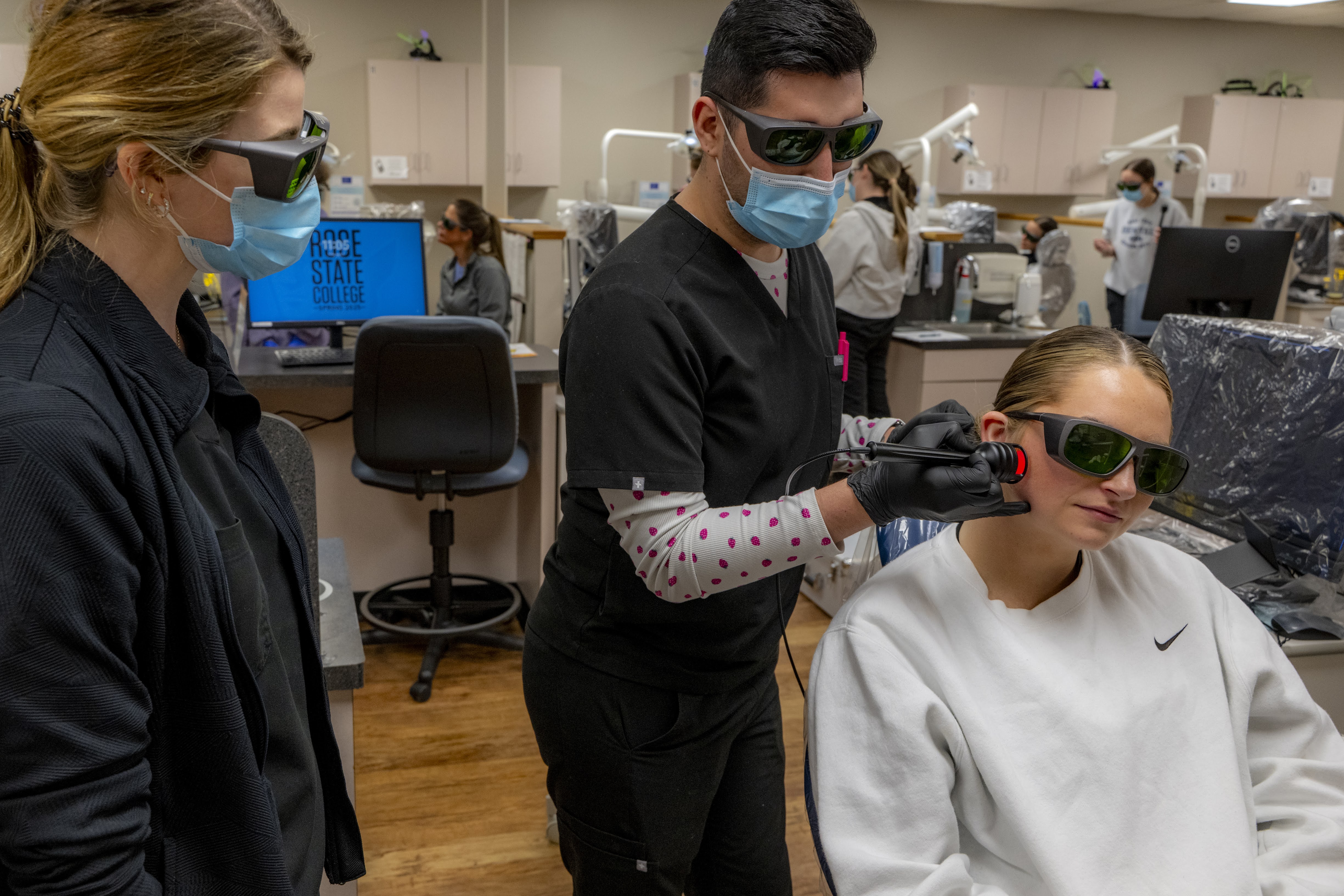Davis, Virginia
Born: Jan. 8, 1922
Date Interviewed: April 5, 2003
Interviewer: LaFreda Sapp
Topic: Mrs. Davis’ work experience during World War II.
Q: Where did you attend school and for how long?
A: I attended school at Cleveland Elementary School, Taft Junior High School, and Classen until I graduated in 1941.
Q: What were your interests and hobbies as a young woman?
A: Music.
Q: When did you begin to get a sense that the US was headed toward war?
A: I guess in the 40s when I was getting out of high school and getting ready to go to college.
Q: What was your reaction?
A: I wanted to work a year and buy some clothes and go to college, but war came on, and I decided to go ahead and get married.
Q: What was the atmosphere like and the mood of people in the town in which you lived?
A: Just about like it is right now. We didn’t know exactly what was going on, but we were, of course, praying that war would be short and sweet.
Q: Were you married at the time? Or seeing anyone on a regular basis?
A: I was married December 31, 1941.
Q: Did the two of you discuss how the war might affect your relationship?
A: Oh yes. We knew he would go into the service, so we went to California to be with his parents for awhile until he went into the service.
Q: When did the government announce that the women were going to be brought into the defense industry?
A: I’m not sure of the date of that, but shortly after we moved to California, because that’s when I decided to go to work for Douglas Aircraft.
Q: And what year was that?
A: 1942.
Q: What was your reaction at the time?
A: Well, I wanted to get out and get a job and do my part.
Q: When did you decide to become a so-called “Rosie the Riveter,” or work in the war effort?
A: I was not a Rosie the Riveter. I was a Douglas inspector, and I decided to do it in 1942 after my husband went to work for the shipyards, I decided to go to work for the aircraft company – Douglas Aircraft in Long Beach, California.
Q: How did the people close to you react to your decision?
A: They were all for it.
Q: Did you know a lot of other women in your area that were also going to become involved?
A: No, I was a new-comer to California, so I didn’t know a lot of people until I started working.
Q: How did the process unfold as you went from civilian to defense industry worker?
A: I started to work out there and I loved my work and I did a good job.
Q: What kind of job or jobs did you work? What were you responsible for?
A: Douglas air parts. We had to inspect all the spare parts that were sent to repair the airplanes.
Q: How many hours per day did you work and how many days per week did you work?
A: I worked eight hours a day, five days a week.
Q: What kind of pay did you receive?
A: I don’t remember that.
Q: How long did your employment last?
A: Until the war was over. I moved back to Oklahoma City where my parents were and went to work for the Douglas aircraft here in Oklahoma City.
Q: What was the mood of your fellow female workers?
A: They didn’t like California workers coming to work for Oklahoma, so they didn’t treat me too well. They put me in a bin counting parts.
Q: Was there a sense of camaraderie among the female workers? Did you make any lifelong friends?
A: In California, yes. I still communicate with two of them.
Q: Did the women enjoy the work, or did the work prove difficult for some of the women?
A: No, it was easy.
Q: Were the women from every kind of economic, racial, and social background?
A: I’m sure they were.
Q: If so, could you please elaborate whether or not all women were treated equal or if some women, because of their background, had a more difficult time than others. Please feel free to expand on anything to do with this?
A: No, in California I think they all treated us very well. They hoped that all the Oklahomans would go back to Oklahoma when the war was over.
Q: What was the reaction of the fellow male workers?
A: They were glad that we were there and we were doing our job.
Q: How were you treated by them, as well as by the bosses who were in charge?
A: Very well.
Q: What was the overall atmosphere at Tinker Air Force Base and the surrounding area?
A: At Tinker Air Force Base, they did not treat me as well as they did in California, because they thought I was from California and they didn’t think that I needed to be coming to Oklahoma taking jobs.
Q: What kinds of memorable occurrences did you witness or experience?
A: We gave blood every 10 or 11 weeks – as long as we could. I couldn’t give but a couple of times because I was anemic and I passed out, so I had to quit giving blood, but we were all very eager to do our part.
Q: After the war, was there any kind of pressure from the government and the media for women to leave the workplace and return to homes so that male veterans could once again have access to jobs?
A: Not that I know of.
Q: When the war was over, did you quit working?
A: Yes, when my husband came back from overseas – he was over there for 18 months – we bought a car and furniture and rented a house and had a baby.
Q: How do you think the war years impacted the lives of women in this country?
A: I think we didn’t have any real impact.
Q: What impact did the working women of World War II and their experiences have on future generations of American women?
A: I think they were treated very well.
Q: Did the skills you learned during the war serve you in any kind of way in the subsequent years after the war?
A: No.
Q: What things stand out most in regard to your experience as a Rosie the Riveter or any of the other kinds of work you did during World War II?
A: I was not a Rosie the Riveter. I was an inspector, so my work was very easy, and I enjoyed it very much and I enjoyed the people that I worked with.
Q: What kind of lessons did you learn?
A: That I could do anything that I desired to, like getting out and getting a job, because the only thing that I had ever done was to work at Kerr’s Department Store selling clothes, so I was glad that I could be a person that worked in the aircraft [industry].
Q: If you would like to discuss or expand on anything at this time, please feel free to do so. Would you like to add anything?
A: No.



